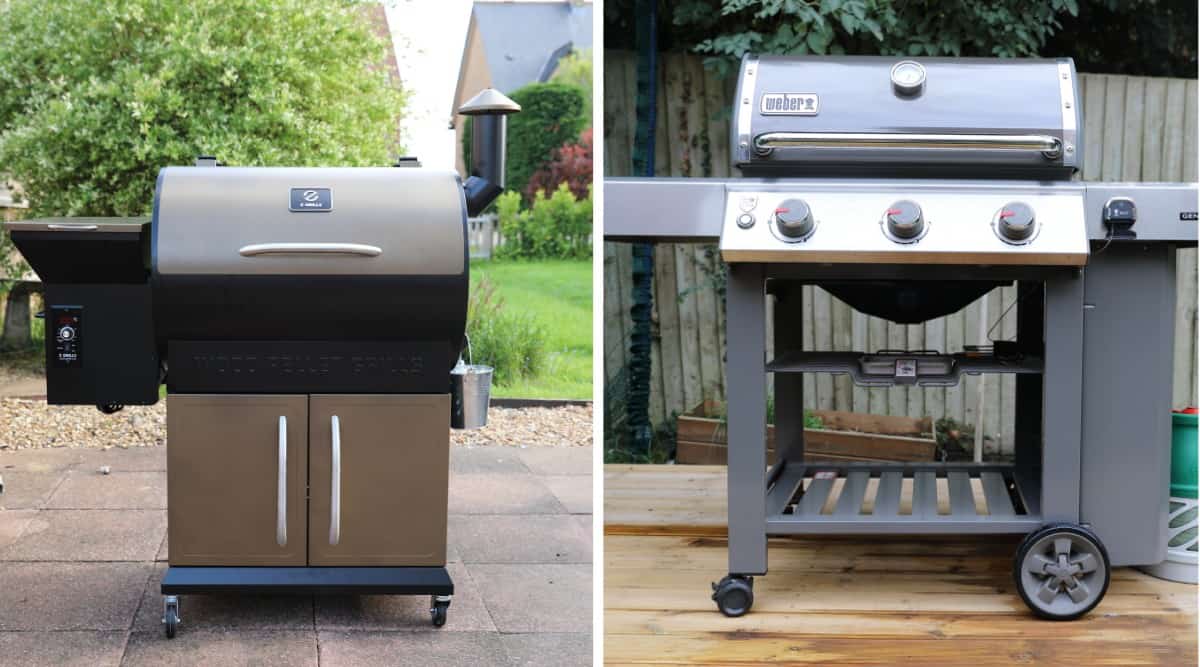
If you’re considering the purchase of a new grill, with ease of use and convenience as your main deciding factors, then you’ve probably boiled it down to choosing between a pellet grill and a gas grill.
As someone who’s owned dozens of each type and still owns more than a handful of each, I have experimented for countless hours with both types of grills. In this guide, I’ll use my experience and findings to walk you through the pros and cons of each grill type, helping you weigh up the essentials such as flavor profiles, costs, user-friendliness, the nitty-gritty of maintenance, and the diversity and effectiveness of cooking techniques each grill supports.
By the end of this article, you’ll be equipped with the insights and knowledge to make an informed buying decision that best suits your taste and lifestyle.
Note: This is one article in a series comparing grills that use different fuel types. Please do also check out the following comparisons to ensure you make the right choice: Pellet Grill vs Charcoal Grill, Charcoal vs Gas Grill and Electric vs Gas Grill.
Jump to:
- 1 Bottom Line up Front: Which is Right for You and Why?
- 2 At a Glance Comparison Table of Pellet Grills vs Gas Grills
- 3 Basic Overview of Pellet Grills
- 4 Basic Overview of Gas Grills
- 5 Pellet vs Gas Grills Contrasts and Comparisons
- 6 Cleaning and Maintenance
- 7 Gas Grills Summary
- 8 Pellet Grills Summary
- 9 Conclusion
Bottom Line up Front: Which is Right for You and Why?
I own multiple models of both gas grills and pellet grills, and my ultimate advice is this:
Choose a gas grill if you are primarily looking for an actual grill, something to cook small items hot and fast while only occasionally cooking large roasts or other items low and slow.
Choose a pellet grill if you are primarily looking for a smoker, something that can cook low and slow, smoke foods, and cook large roasts with ultimate ease while adding a genuine barbecued smoky flavor, and only occasionally want to grill small items hot and fast. But make sure it has the actual ability to grill, as many models do not, they are smokers only!
Gas grills suit those who value quick and easy grilling. They heat up fast, perfect for impromptu grilling or when time is short. These grills offer precise control over the temperature, making it easy to cook various foods evenly, from steaks to veggies. Plus, gas grills are easier to clean and maintain than pellet grills, ideal for hassle-free grilling.
Pellet grills are great for those who love rich flavors and cooking versatility. They use wood pellets, adding a unique smoky taste to the food, which barbecue lovers often prefer. These grills are great for trying different wood flavors like hickory, apple, or mesquite. Pellet grills can smoke, roast, and bake, perfect for various cooking styles, but aren’t the best at high-heat grilling.
At a Glance Comparison Table of Pellet Grills vs Gas Grills
Here’s a quick overview table of gas grills vs pellet grills, showing the main points of comparison and how each grill type measures up.
| Factor | Pellet Grills | Gas Grills |
|---|---|---|
| Impact on Flavor | Imparts a rich, smoky flavor that varies based on the type of wood pellets used (hickory, apple, mesquite, etc.) | Provides a cleaner taste; less smoky, but can incorporate flavor with smoker boxes |
| Initial Cost | Ranges from $350 to $2,500+ depending on size and features | Typically ranges from $200 to $1,500+, with luxury models being more expensive |
| Operating Costs | Wood pellets cost about $1 per pound, with an average grill consuming 1-3 lbs per hour of cooking (more expensive than gas.) | Propane costs around $20 for a 20-pound tank, which can provide 20-25 hours of grilling; Natural gas is cheaper but requires a fixed line (cheaper than wood pellets.) |
| Ease of Use | Automated pellet feeding and temperature control. Fill with pellets and set a temp. Very easy. | Quick ignition, faster preheat times, easy temperature adjustment with knobs. Very easy to use. |
| Versatility | Suitable for smoking, roasting, and even baking. Can grill but struggle to get very high temperatures; generally more versatile | Primarily for grilling and searing; limited capability for slow cooking and smoking |
| Temperature Range | Usually from 180°F to 500°F, perfect for both slow cooking and low heat grilling | Typically ranges from 200°F to 600°F, excels at high-temperature grilling |
| Temperature Control | Precise control with digital thermostats; can maintain steady temperatures | Manual control, less precise but effective for direct heat cooking |
| Run Time (Before Refueling) | A 20-pound pellet hopper can last for 6-20 hours depending on cooking temperature | A standard 20-pound propane tank lasts approximately 18-20 hours; natural gas grills have a continuous supply |
| Cleaning and Maintenance | Requires regular cleaning of ash and pellet residue, more intensive maintenance | Generally easier; involves cleaning grates, burners, and drip trays; less residue build-up |
| Available Extras | Features like Wi-Fi connectivity, meat probes, and programmable cooking options are common | Extras may include side burners, rotisseries, infrared burners, and griddle plates |
Basic Overview of Pellet Grills
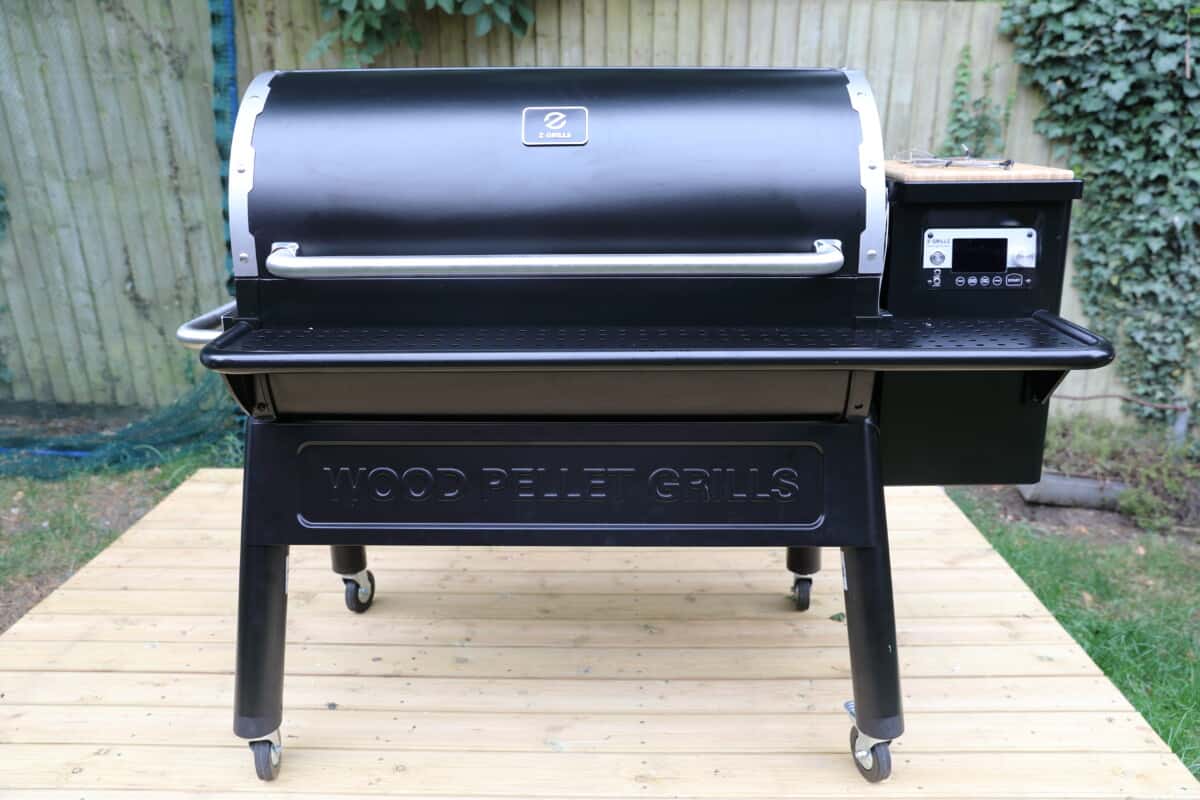
Pellet grills are all-in-one outdoor cookers that act like smokers, grills, and ovens. They use wood pellets made from compacted sawdust for fuel. An auger moves these pellets from a hopper into a firepot, where they burn, creating heat and smoke to use for cooking. They then have a fan to spread the heat and smoke evenly throughout the cooking chamber.
A big advantage of pellet grills is their ease of use. Once you fill the hopper with pellets and turn them on, you simply set a cooking temperature on a digital controller, and the grill does the rest. It couldn’t be easier! The grill will maintain a steady temperature, anywhere from 200 °F to 500 °F.
Pellet grills are great for slow cooking, smoking, and roasting, but many struggle with the high heat necessary for grilling. However, many brands offer pellet grills with extra features like direct flame searing for true searing temperatures.
People like pellet grills for being easy to use, fuel-efficient, and adding a unique wood-fired flavor to food. But, there are things to think about before buying one. Pellet grills are usually more expensive upfront than other grills. And they need an electrical outlet nearby, which can limit where you can use them. Also, you need to have access to wood pellets for fuel, as the grills can’t work without them.
Basic Overview of Gas Grills

Gas grills, which use propane or natural gas, have gas burners for heat, grates for cooking food, heat deflectors (Flavorizer bars) to spread heat, and knobs to turn up and down to control temperature.
Gas grills heat up fast, perfect for quick, high-temperature cooking directly over flames. The fuel, often propane, is stored in a tank under the grill. You can adjust the heat with dials that open and close valves to control the gas flow to the burners.
While mainly used for quick grilling of small items, some models also allow slower cooking methods. And you can always add a wood chip smoker box for added flavor.
New features on some models, like infrared burners, improve high heat searing in gas grills. But they don’t hold heat as well as other grill types and lack the smoky taste of traditional grilling over wood or charcoal. Still, they are popular for their low cost, ease of use, and quick heating times.
Pellet vs Gas Grills Contrasts and Comparisons
Both pellet grills and gas grills have their merits and drawbacks, and understanding these contrasts and comparisons can help you choose the grill that best suits your needs and preferences.
Let’s take a closer look at the things to keep in mind when choosing which type of grill to buy.
Impact on Flavor
Gas grills create a neutral taste, while pellet grills add a smoky barbecue flavor that you can change by using different pellet varieties from sweeter and milder fruit and nut trees, to stronger flavors such as oak, maple, or mesquite.
When you cook on a pellet grill, you are burning wood pellets made up of 100% compressed sawdust. In other words, you are cooking with 100% wood. Needless to say, you can expect your food to have a distinct smoky flavor.
By contrast, food that’s cooked on even the very best propane grills will not directly benefit from any added flavor. Rather, the meat will simply taste like cooked meat. Any added flavor for food that is cooked with gas will have to come from any seasoning you first apply.
However, you CAN also smoke on a gas grill! You just need to add a smoker box containing wood chips to smolder as you cook. The smoky flavor will be nowhere near as pronounced as on a pellet smoker, and takes a bit more work, but it’s better than none.
In my opinion, pellet smokers create the better flavored food with a greater amount of ease. So pellet grills win on flavor.
Initial Cost
As a general rule, pellet grills are more expensive than gas grills. Gas grills tend to sell for anything from $200 to $1,500, whereas pellet grills tend to sell for between $350 to $2,500.
Gas grills can be found for as cheap as $200 in almost any big box store across the globe, though the best models can go for in excess of thousands of dollars. And if you’re frugal, you can sometimes sniff out a good deal in your neighborhood classifieds for a used unit.
Pellet grills, on the other hand, are typically much more expensive out the gate. Even the cheaper units you find at your local big box store will still run you over $350, and that’s for a smaller, less reliable unit.
Operating Costs
Generally speaking gas grills are cheaper to run than pellet grills.
A pellet grill will in theory only need wood pellets and electricity for it to operate. The number of pellets burned depends on the size of your model and your desired temperature. The larger the grill and the hotter your fire = more pellets per hour.
That said, Stephen Raichlen of Barbecue Bible points out that a 20-pound bag can last up to 40 hours @ 250 °F. However, in my experience having used and owned many low to medium priced pellet grills, they tend to consume between 1-3 lbs per hour of cooking. At approximately $1 per pound of pellets, that’s $1 to $3 per hour of cooking.
Gas grills will mostly only need propane to operate (unless you’re running a natural gas grill). How much grilling can you do with a single tank? That will also depend on the size of your model and your cooking temperature. In my experience a 20-pound tank can provide 20-25 hours of grilling and costs approximately $20. So we’re looking at $1 or less for each hour of cooking, which is less than almost any pellet grills running costs.
Ease of Use
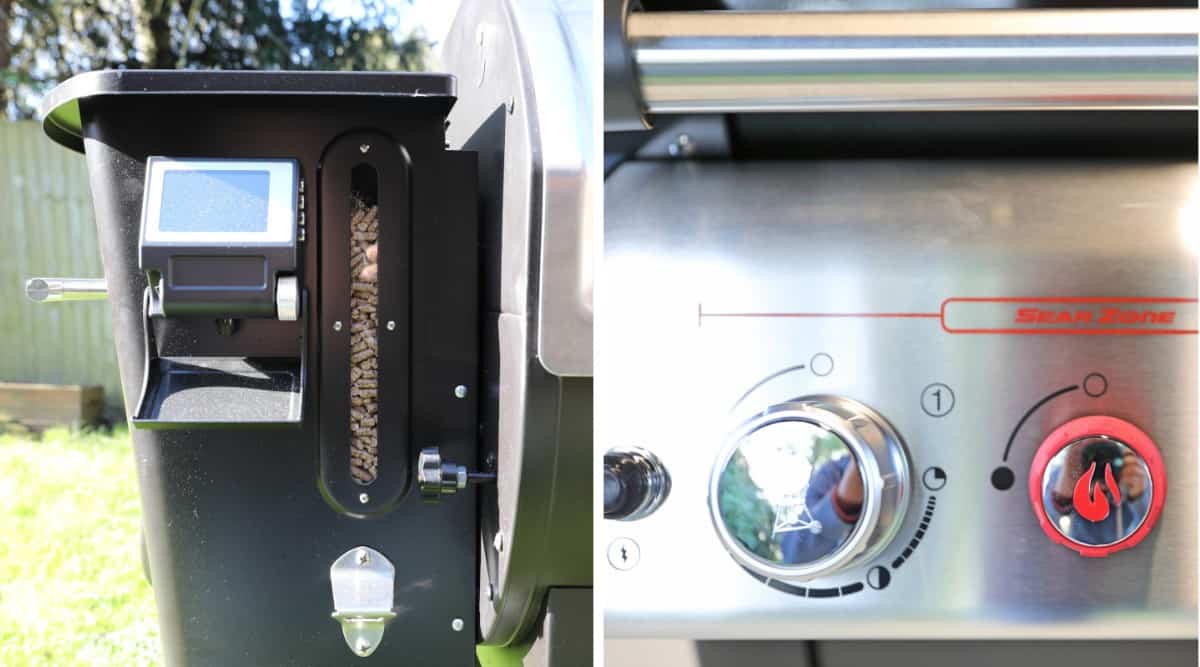
Both pellet grills and gas grills are similar in their startup and fire management techniques. Pellet smokers start with the switch of a button, and gas grills start with the lighting of propane. You can increase or decrease the temperature of a pellet grill by changing the settings, and with a gasser you simply turn the burners up or down. They are both similarly easy to turn off.
So both types are incredibly easy to use, require no fire lighting or fire management skills, (unlike wood or charcoal grills.)
Clean up is a different story. With a pellet grill, you typically have some kind of barrier between the fire pot and the cooking grates that gets covered with drippings from the food. To avoid the mess, many will wrap them in aluminum foil that can be replaced every couple of cooks. You also have ash left over from the burning wood that you need to regularly clean out.
With a gas grill, you tend to have similar deflectors called ‘flavorizer bars’ that will catch dripping fat and food. In my experience, simply turning the heat up at the end of every cook will burn up most of the fat and food until it becomes carbon that is easily scraped away. And there is no ash you need to contend with.
Versatility
Gas grills are generally more versatile when compared to pellet grills.
As long as you have two or more burners in a gas grill, you can set up different heat zones to cook foods at different temperatures. And they can quickly switch from high heat for searing to low heat for slow cooking. You can cook anything from burgers to ribs on them.
Pellet grills can only have one single temperature throughout the whole cooking chamber. So everything on them cooks the same. Pellet grills are good at keeping precise and consistently low temperatures for smoking, thanks to their wood-fired convection, giving food different flavors depending on the wood pellets used, like hickory or apple.
Let’s be clear: it is easier to grill on a gas grill, and it’s easier to smoke meat on a pellet smoker. With that said, most gas grills can easily be set up to smoke meat by adjusting the temperature knobs and adding wood chips. Will the result be as good from something cooked on a smoker? No, but it will work in a pinch (plus there are of course dedicated gas smokers.)
Likewise, many pellet grills can reach temps of 500 °F+, and with the help of a product like GrillGrate, can potentially even get the grate level-up to 600 °F. Just don’t expect the world’s best sear on your ribeye.
So if you mostly want to sear and high heat grill, only occasionally roasting or smoking, then a gas grill is best. If you want to mainly cook low and slow, smoke and roast, only occasionally high heat grilling, then a pellet grill is best.
Temperature Range
A pellet grill can easily be programmed to cook at low and slow temps of 225 °F for long periods of time, but can easily be cranked up to 500 °F if you want to try and use it to direct grill meat.
Most gas models are able to easily manage temps as low as 225 °F and can reach temps as high as 600 °F+, depending on the number of burners and their BTU.
Overall a pellet grill is best though for smoking and roasting temperatures, while a gas grill is better for higher heat searing and grilling.
Temperature Control
Pellet grills come with digital controllers, offering precise temperature control and versatility. This precision is a unique feature that allows you to dial in your desired cooking temperature, essentially turning your grill into an outdoor oven. You can set it and forget it, knowing your grill will maintain your chosen temperature.
In contrast, gas grills provide immediate heat control with knob adjustments and are known for their ability to heat up quickly and provide consistent heat distribution, which is crucial when you’re cooking for a crowd and need to get food on the table fast. But their temperature will vary depending on wind and ambient temperatures, and you need to continually adjust rather than set and forget. But the dial allows for a quick response to temperature changes, which can be handy when searing steaks or cooking delicate items like fish.
So, while both types of grills offer different kinds of temperature control, your final choice may boil down to what kind of cooking you plan to do most often.
Gas grills may suffer from temperature fluctuations, whereas pellet grills offer greater temperature precision. However keep in mind that gas grills can create different temperature cooking zones.
Run Time (Before Refueling)
Your runtime varies on both cookers because of a few variables. With a pellet grill, the number of pellets you burn per hour will depend on the temperature you are cooking it. With as little as half a pound per hour if you are smoking meat, and as much as 2 pounds per hour if you are trying to high-heat sear. The good news is that as long as you have some 20-pound bags of pellets on hand, you’ll never be stuck.
With a gas grill, the amount of propane you burn per hour will depend on the total number of BTU’s your burners are, the number of burners you are using, and how high you have your temperature, but David Galloway of Life Hacker boasts that most grills will get 20 hours of cook-time on a 20 pound tank.
Overall though, trying to compare like for like when it comes to grill size and cooking temperatures, you will need to refuel a pellet grill more often than a gas grill, and the running costs are higher.
Cleaning and Maintenance
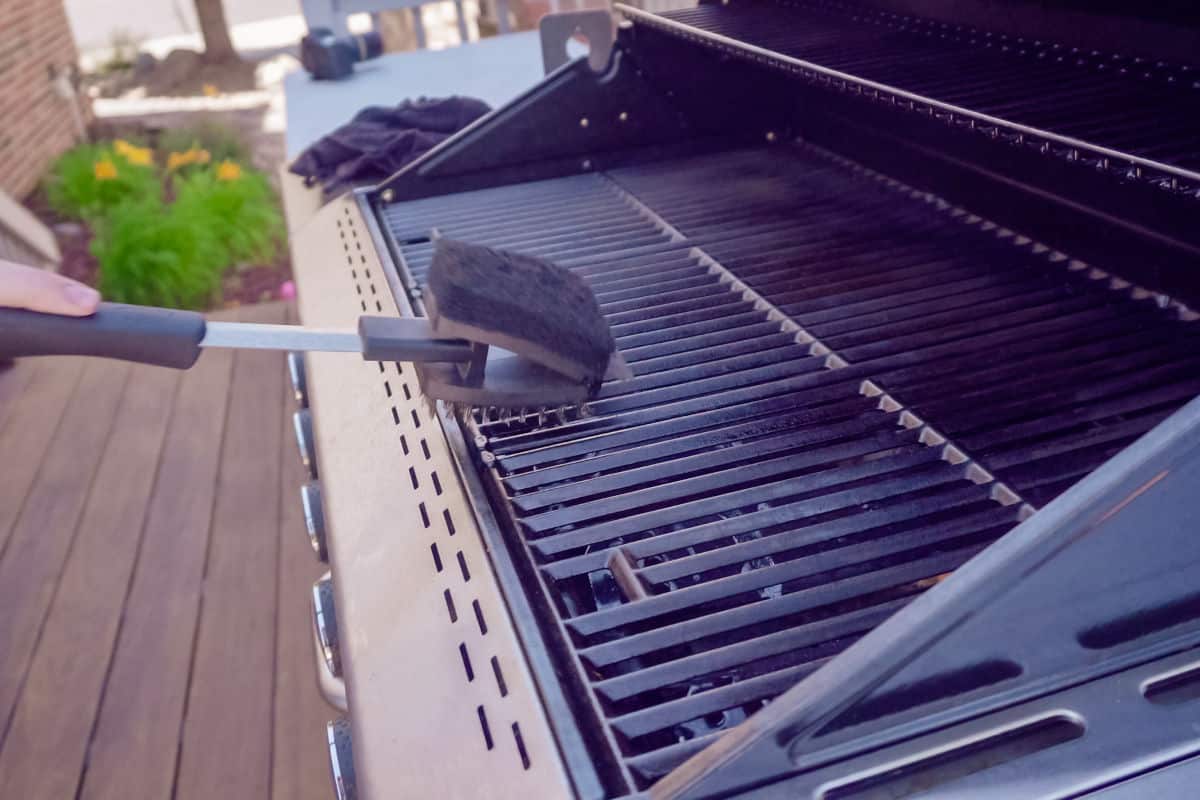
Keeping your grill clean, whether it’s a gas or pellet model, takes a little work. Both types of grills require vigilant attention to grease buildup from fats and oils, need their grates cleaned regularly, and food debris and drippings burned off and routinely removed.
Pellet grills, however, demand a bit more elbow grease due to the ash buildup from the wood pellets, which can hinder airflow. While some models feature removable ash canisters for easy disposal, others necessitate the removal of interior components and vacuuming of the ash. A wet/dry vacuum is the most effective tool for this task.
So, due to a lack of ash, gas grill maintenance is generally less demanding than pellet grills.
Either way, you’re going to want to give your grills a deep cleaning about once per year. Remove the grates, and heat deflectors, then clean with hot soapy water. Any dried up pieces of carbon can be sucked up with a shop vac before the units are reassembled.
Available Extras
Almost all manufacturers will have aftermarket toys you can purchase to add to your grilling experience. Many pellet grills have available options that allow you to cold smoke at low temps (100 °F – 150 °F) and add smoke flavor to foods like cheese. Some have options for added shelving inside the cooking chamber to allow you to increase your cooking capacity.
Gas grills will have some toys that can be added, but will likely not be in the same vein as pellet types. Many manufacturers will have aftermarket items like pizza stones, rib racks, cleaning brushes, etc. that can be added but are largely similar to other available options on the market.
Gas Grills Summary
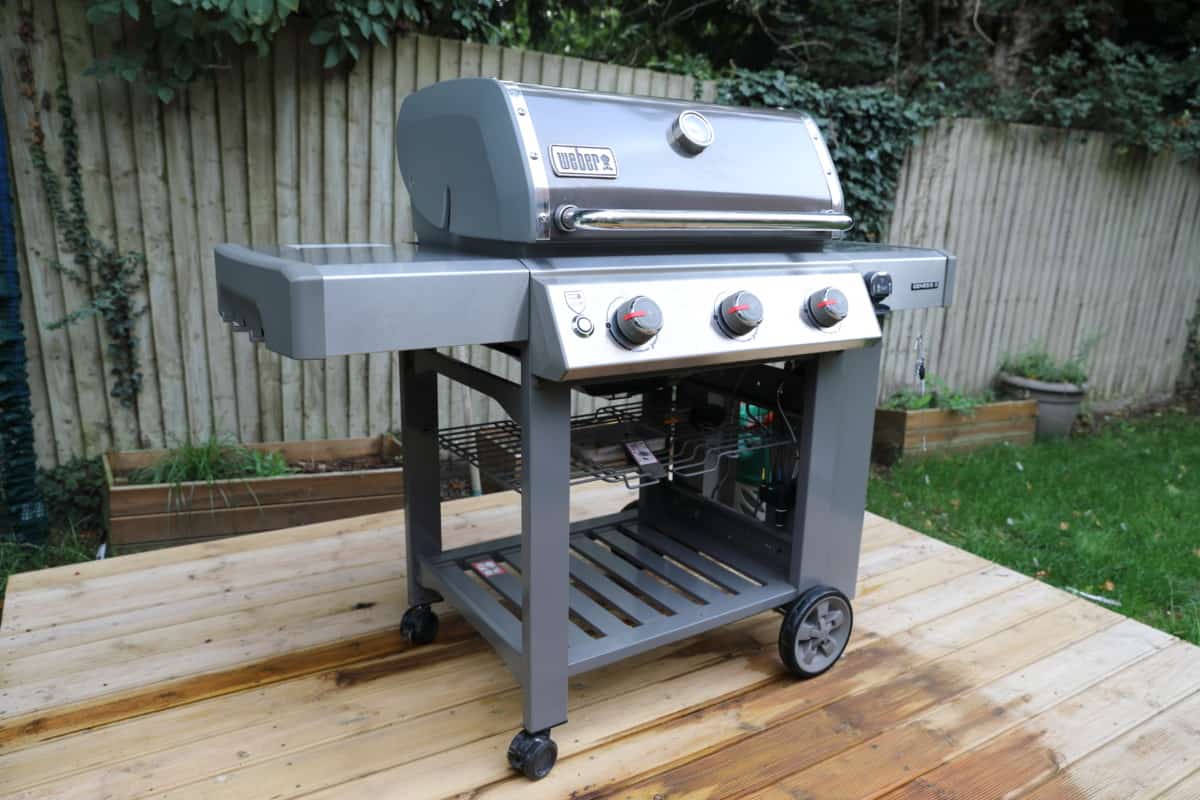
To summarize what we’ve said about gas grills in easy to scan bullet point lists:
You May Prefer Gas if…
- You like being able to fire up and reach cooking temp quickly, to easily cook up a meal quickly
- You mostly want to be able to sear meat at higher temps
- You’d like to have different heat zones on your grill to cook at different temps simultaneously
- You like the ability to control temp with the turn of a knob
- You do not care if your food has a smokey flavor
- You don’t want to have to clean up ashes on a regular basis
- You like to quickly and easily cook dinner from start to finish
You Might not Like This About Gas Grills…
- You have to work hard and take preparations if you want to roast large cuts or slow smoke meat with them
- You have to monitor and adjust temperatures constantly
- If you run out of fuel halfway through your cook, you’re in trouble
Pellet Grills Summary
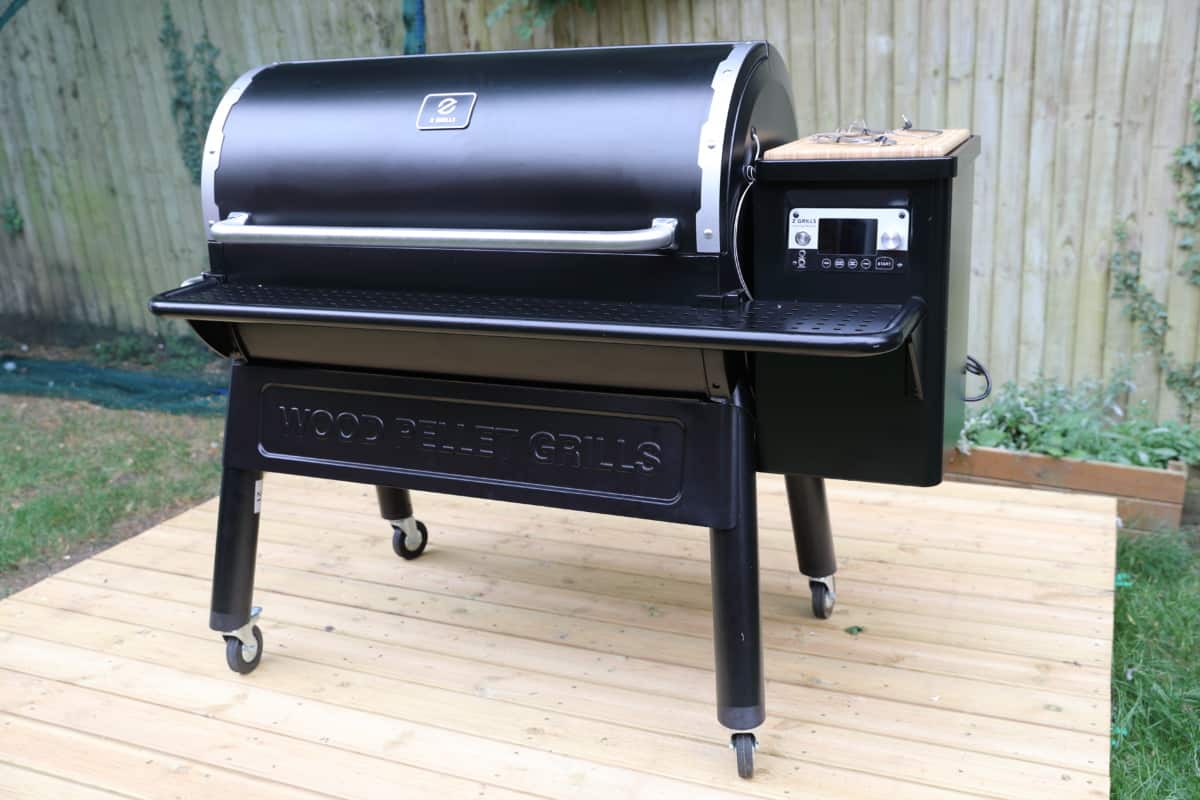
To summarize the main points of pellet grills in bullet point lists:
You May Prefer a Pellet Grill if…
- You like the added flavor of smoke from real wood
- You want to be able to cook with fire, but not have to manage a real fire
- You like the quick and easy ability to fire up — just push a button, and it’s lit
- You want to smoke meat at lower temps mostly
- You only occasionally want to be able to turn up the temperature and sear some meat with direct heat
You Might not Like This About Pellet Grills…
- Most models have difficulty in reaching truly high searing temperatures
- They run on electricity, so you will need to be near an outlet to throw down
- They require a regular cleanup every couple of cooks
Conclusion
While it’s easy to both light and manage their fires, how gas grills and how pellet grills work is very different. And owners of each type will line up to tell you what makes their particular choice superior.
Choosing between gas and pellet grills depends on personal taste and needs. Some might prefer the fast cooking of gas grills, while others might like the slow, flavor-rich cooking of pellet grills. The best choice changes based on what you intend to cook and how often.
At the end of the day, I love that you get added smoke flavors when cooking with wood pellets, and while it may not be easy, I can sear meat with them. So my preferred choice is for a pellet grill.
Whether you like gas or pellet grills, staying open to trying the other is good. It can open doors to different cooking techniques and foods, and is ultimately fun.
How about yourself? Do you have a preferred type? Do you currently own a gas or pellet grill and secretly want to try the other? Leave us a comment down below with your thoughts.
Happy grilling!


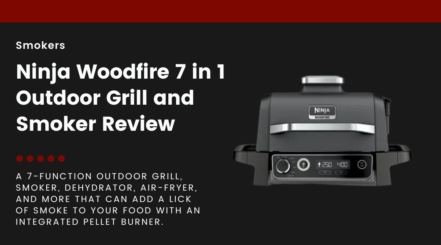
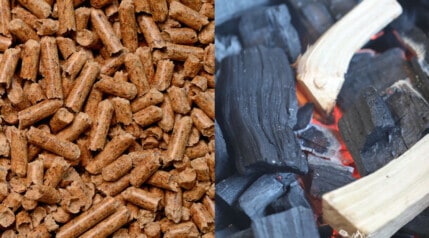

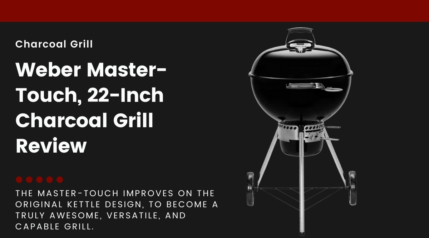
The best part of your blog is when you said that operating a pellet grill will only require you to switch its button on which is a lot easy for users. My parents are planning to buy new grills for their house. They are both seniors, so it’s important for them to find a type of grill that won’t be too complicated to use. I’ll make sure to share your blog with them.
Yes, simplicity is sometimes under-rated. I mean, don’t tell anyone but I still use my kitchen oven and hob a few times every week for that very reason, haha.
I like to know if pellet Barbecue have a longer lifetime then a gas barbecue
Hi Laura,
There’s no right or wrong answer to that I’m afraid. A high-quality grill in either category should last a lifetime for the grill body, grates and other parts, though both types do have consumables that may well need replacing ‘at some point’ for ongoing maintenance, be that electronics and heating elements in a pellet grill, or burners, pipes and tubes etc. In a gas grill.
A gas grill has less technology, there are no electronics, so ‘in the main,’ I would say a gas grill has the chance to last longer. But You (or I) cannot say this with any confidence, it just depends on so many factors that it’s impossible to say. A high-quality pellet grill will likely last longer than a lower quality gas grill, and vice versa.
But if pushed, and I had to give an answer, generally speaking, I would say a gas grill SHOULD outlast a pellet grill, simply due to being less complicated, less tech inside, fewer parts that can age and break.
Does it taste like a Webber gas grill, the ones with pellets?
Hi Betty,
Sorry, I don’t understand the question, can you clarify with more detail?
Great blog, thank you for sharing your wisdom and experience 😉
I am curious why you say that food cooked on a gas grill will not directly benefit by any added flavor. When I remember to soak some wood chips and add them under the grate, I can enjoy different flavors like applewood or hickory. Am I not understanding what you mean when you say this?
Thank you again,
Michelle
Hi Michelle,
Sure, you can add a smoky flavor with a gas grill by adding wood chips, and I do comment this myself and link to an article where I detail how. But it will be a different flavor profile, and not taste as strongly smoked as if a pellet grill was used.
For the record, I’m not against gas grills, had one for years and likely will get another in the future. Personally, I’m all about charcoal cooking and wood burning open flame cooking in recent years, but for the sheer convenience and being able to fire something up quickly mid-week, with so little fuss both before and after cooking, I’m still a fan of gas grills.
Awesome Blog! Thanks, for sharing this useful information.